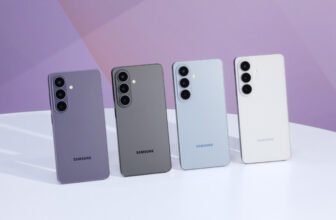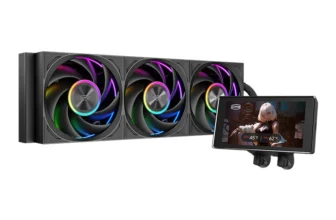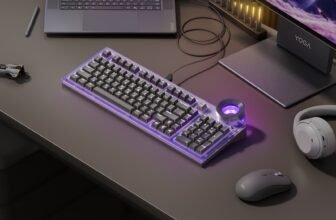Pimax has announced the launch of the Dream Air SE VR Headset, a more accessible addition to its high-end virtual reality product line, along with an updated version of the Dream Air headset. Both headsets are scheduled to begin shipping in Q3 2025 and are currently undergoing testing in preparation for release.
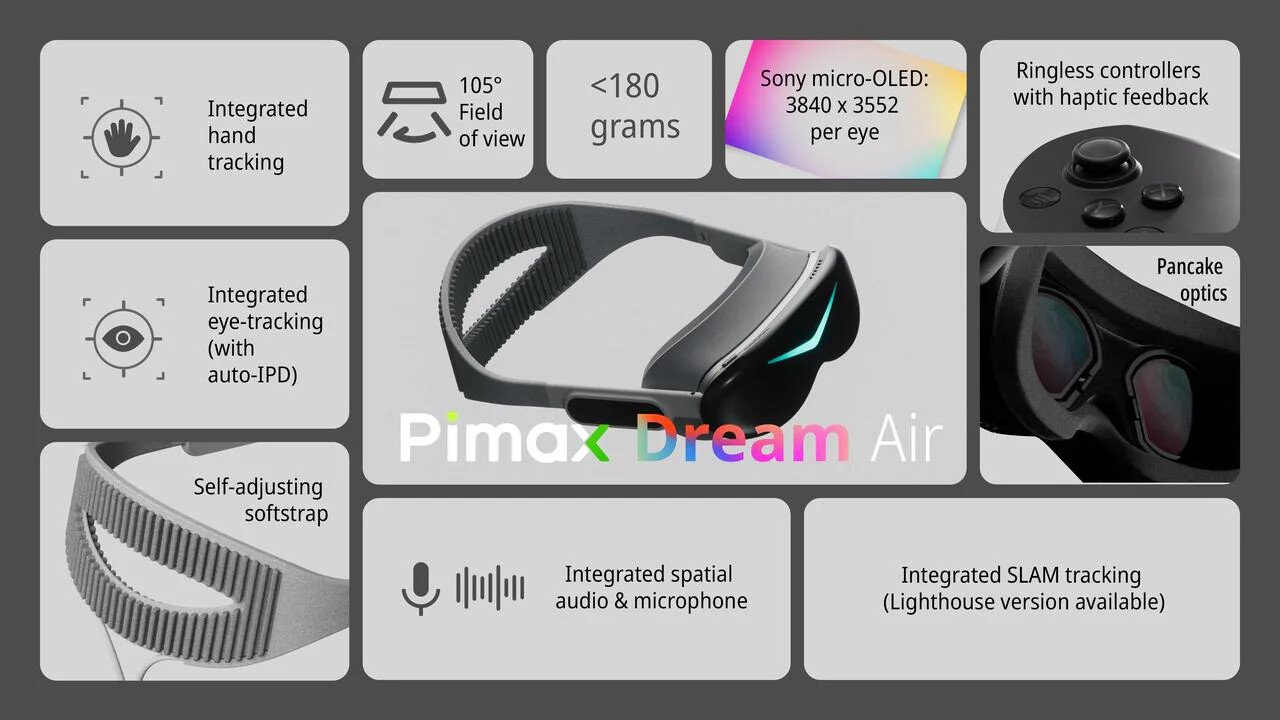
The original Dream Air was first introduced in December 2024 and positioned as the world’s smallest VR headset with full 8K resolution. It featured dual Sony micro-OLED panels offering a combined resolution of 7680 x 3552 pixels, or 3840 x 3552 pixels per eye. The updated version of Dream Air now includes enhanced display panels that improve brightness, color depth, and clarity. With a wider 20° chief ray angle and more than 27 million pixels across both eyes, the updated headset is designed to deliver high-detail visuals suitable for demanding VR applications.
Pimax has also improved the optics with new-generation pancake lenses that aim to offer edge-to-edge clarity and reduce glare. The headset includes comprehensive tracking options: inside-out tracking, 120 Hz Tobii-powered eye-tracking, hand-tracking, and support for external controllers. Users can choose between a SLAM-tracked version (inside-out) or one compatible with Valve’s Lighthouse system. Integrated audio and a redesigned ergonomic headstrap round out the hardware improvements. The headset remains lightweight, with features designed to support extended use comfortably.
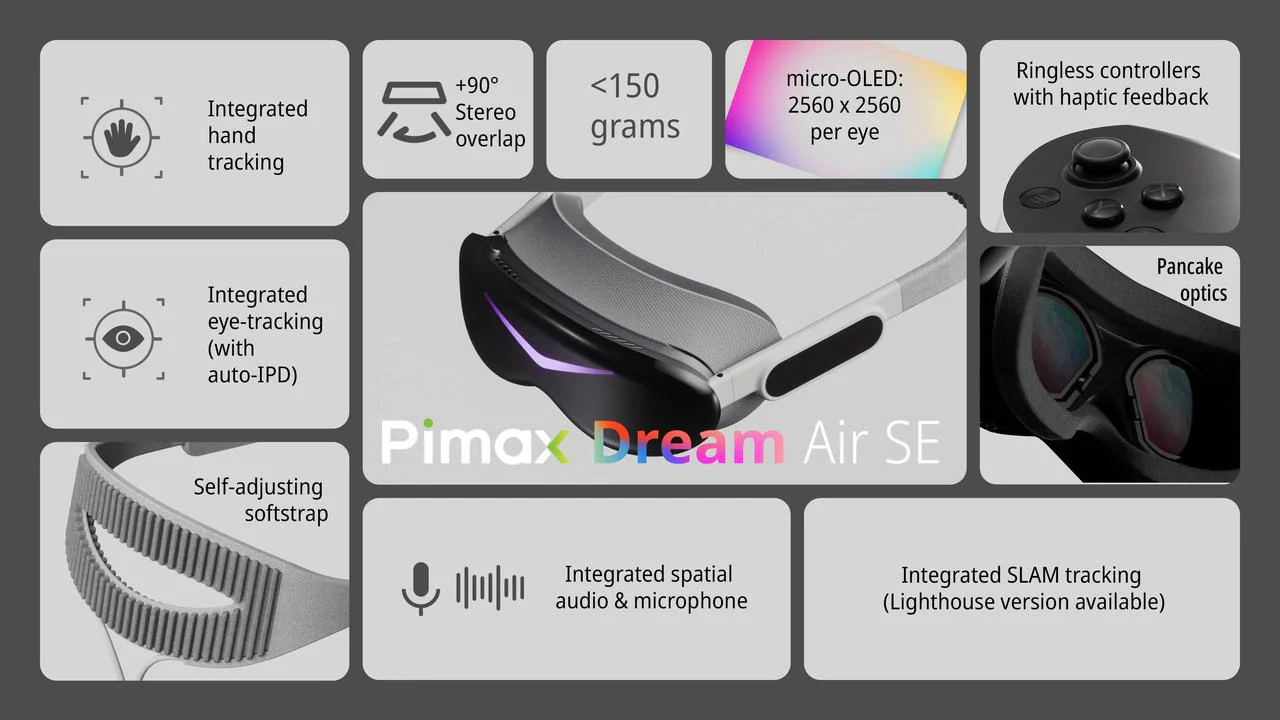
Alongside this, Pimax has introduced the Dream Air SE. While it doesn’t match the full 8K resolution of the Dream Air, it still brings a strong set of features at a lower price point. The Dream Air SE uses 2560 x 2560 resolution micro-OLED panels per eye, offering high pixel density and deep contrast. It also includes a modified optical system with a balanced field of view and over 90° stereo overlap.
Like the Dream Air, the SE version supports inside-out tracking, integrated audio, eye-tracking, and hand-tracking. It weighs less than 150 grams, making it one of the lightest full-featured PC VR headsets available. This makes it suitable for users seeking a portable and comfortable VR experience without sacrificing key functionality.
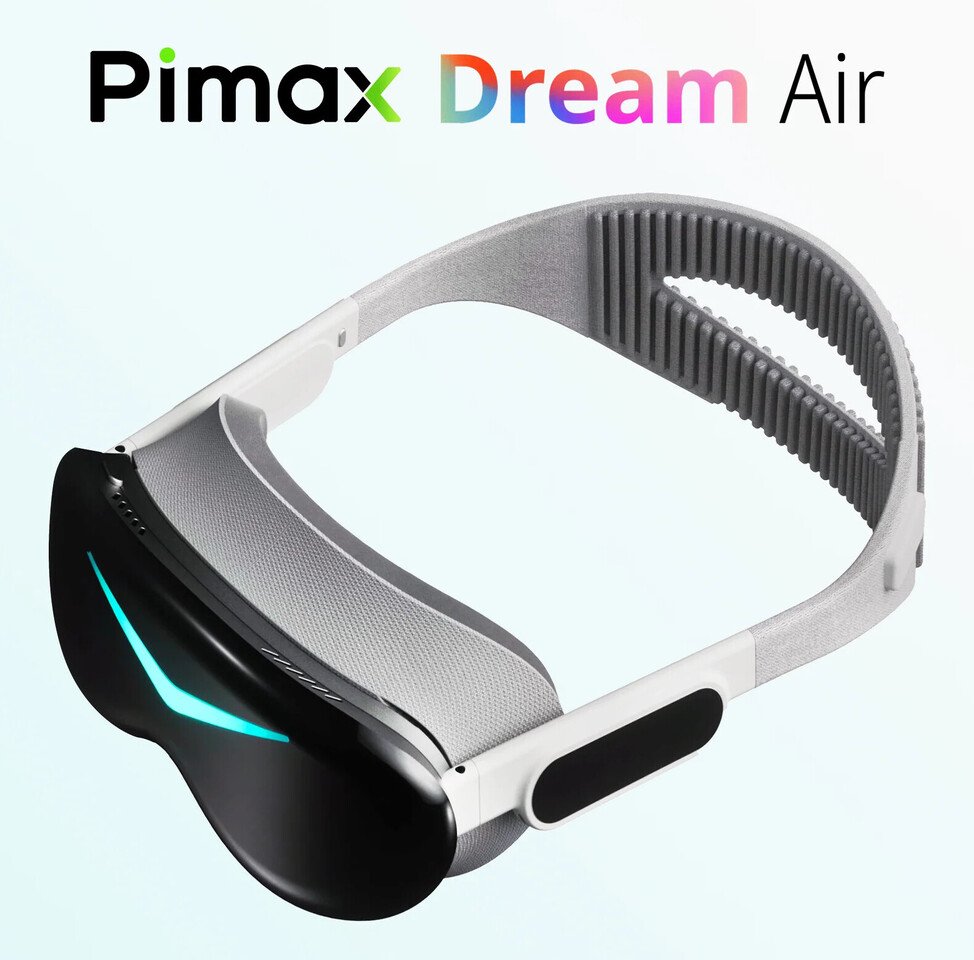
Pricing for the Dream Air SE begins at $899 USD for the Lighthouse version, which assumes the user already owns compatible base stations and controllers. For those who need a full package, the SLAM-tracked version is priced at $1199 USD and includes controllers. Both versions are part of Pimax’s Prime program, with the SLAM model broken down into a $699 headset cost and $500 for controllers, while the Lighthouse version is split between $599 and $300.
Pimax has stated that both headsets are in the final testing phase and on track for delivery later this year. The Pimax Dream Air SE and updated Dream Air represent a continued push by Pimax to offer compact, high-performance PC VR solutions with a focus on both premium capabilities and broader market accessibility.
| Feature | Dream Air | Dream Air SE |
|---|---|---|
| Display Type | Sony Micro-OLED | Micro-OLED |
| Resolution (per eye) | 3840 x 3552 | 2560 x 2560 |
| Total Pixels | Over 27 million | Over 13 million |
| Chief Ray Angle | 20° wide-angle | Standard angle |
| Optics | Next-gen pancake lenses with edge-to-edge clarity | Tailored pancake lenses with balanced FOV |
| Field of View (FOV) | Immersive, wide | Balanced with >90° stereo overlap |
| Eye-Tracking | Tobii (120 Hz refresh rate) | Included |
| Hand-Tracking | Included | Included |
| Tracking Options | SLAM or Lighthouse | Included with the SLAM version |
| Audio | Integrated stereo audio | Integrated stereo audio |
| Controllers | Optional / Included (depending on version) | Included with SLAM version |
| Weight | Lightweight (exact weight not disclosed) | <150 grams |
| Headstrap | Self-tightening with halo support | Lightweight strap design |
| Price (Lighthouse) | Not specified (only SE pricing provided) | $899 USD |
| Price (SLAM version) | Not specified | $1199 USD |
| Availability | Q3 2025 | Q3 2025 |



